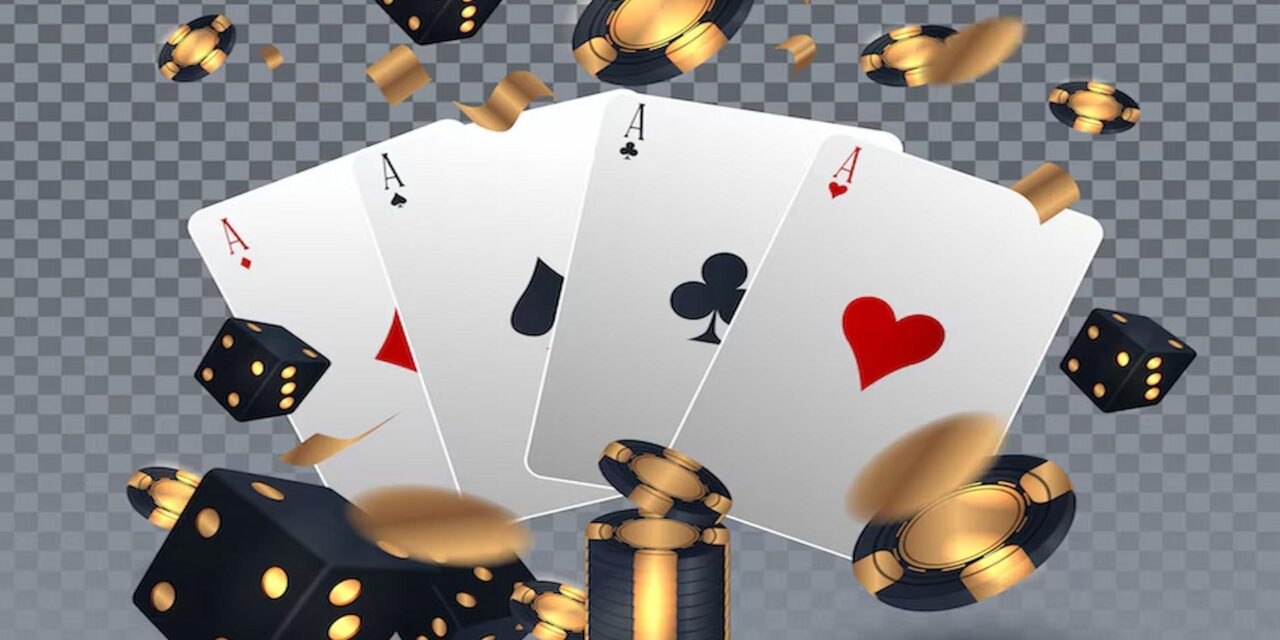Are you ready to sharpen your poker skills and play like a pro? Follow these simple, actionable steps to master the game and become a champion!
Poker is not just a game of cards; it’s a game of skill, strategy, and mental toughness. Whether playing casually with friends or entering high-stakes tournaments, understanding the nuances of poker can dramatically enhance your performance.
This guide will explore simple yet effective steps to improve your poker skills and take your game to the next level. You’ll set yourself apart at any poker table by mastering strategies, managing your bankroll wisely, and reading opponents like a pro. So, let’s dive in and turn you into a poker champion!
1. Learn the Basics of Poker Inside Out
Before diving into advanced strategies, ensure you have a solid grasp of the fundamentals.
Key Points to Main:
- Hand Rankings: Memorize the poker hand hierarchy, from high card to royal flush. Knowing what beats what is crucial for making informed decisions.
- Betting Rounds: Understand betting phases like pre-flop, flop, turn, and river.
- Game Variations: Start with Texas Hold’em, the most popular variant, before exploring Omaha or Seven-Card Stud.
Why This Matters:
Mastering the basics will build a strong foundation for more advanced strategies. Over 80% of beginner mistakes in poker arise from misunderstanding fundamental rules.
2. Practice Bankroll Management
Managing your money effectively is critical for sustained success in poker.
Tips for Smart Bankroll Management:
- Set Limits: Decide on a bankroll amount you can afford to lose without financial strain.
- Stick to the 1% Rule: Never risk more than 1% of your total bankroll in a single hand.
- Track Wins and Losses: Maintain a record to spot trends and adjust your strategies accordingly.
Why It Works:
Poor bankroll management leads to impulsive decisions and emotional gameplay. Statistics show that 70% of poker players who go bankrupt ignore bankroll strategies. Stay disciplined to play confidently and consistently.
3. Study Your Opponents and Master Bluffing
Poker isn’t just about your cards—it’s about reading your opponents.
How to Spot Opponent Tells:
- Body Language: Watch for nervous habits like tapping fingers or fidgeting.
- Betting Patterns: Notice if an opponent bets aggressively with strong hands or bluffs frequently.
- Timing: Quick decisions often indicate a lack of confidence.
Bluffing Essentials:
- Timing Is Key: Bluff when the table dynamics favor you, not on every hand.
- Consistency: Maintain a believable story with your betting pattern.
The Result:
Reading opponents gives you a psychological edge. Studies reveal that skilled bluffers win 30% more pots than non-bluffers, even with weaker hands.
4. Adopt a Winning Strategy
Consistency and adaptability are hallmarks of a poker champion.
Proven Strategies:
- Tight-Aggressive Play: Focus on strong hands but play them assertively.
- Position Awareness: Play more hands when seated in late positions for better information.
- Mix It Up: Don’t become predictable; change your betting style occasionally.
Real-Life Example:
Professional poker players like Daniel Negreanu emphasize the importance of adapting strategies to opponents’ styles. Success in poker comes from calculated risks and informed decisions.
5. Use Poker Tools and Resources
Leverage technology to analyze and improve your gameplay.
Popular Tools to Explore:
- Poker Training Software: Apps like PokerSnowie or GTO+ teach you optimal strategies.
- Hand Replayers: Review past hands to identify mistakes.
- Odds Calculators: Tools like PokerStove help you assess your hand’s winning probability.
Why It’s Effective:
Data-driven insights can fast-track your learning. Studies indicate players who use training tools improve their win rate by 15%-20% over time.
6. Stay Mentally Sharp and Emotionally Balanced
Poker is as much a mental game as a physical one.
Tips for Peak Performance:
- Stay Focused: Avoid distractions like phones or side conversations during a game.
- Manage Tilt: Learn to control emotions after a bad beat; it’s part of the game.
- Practice Mindfulness: Techniques like deep breathing can help maintain composure.
The Psychological Edge:
Mental clarity leads to better decision-making. A calm and focused player outperforms emotionally charged opponents. Remember, 50% of poker is played in the mind.
7. Understand Poker Psychology
Mastering the psychological aspect of poker is a game-changer.
Key Psychological Concepts:
- The Art of Patience: Resist the urge to play every hand. Fold often to save chips for stronger hands.
- Emotional Detachment: View each hand as an isolated event. Losses in poker are inevitable—don’t let them impact your decision-making.
- Opponent Psychology: Exploit tendencies like fear, overconfidence, or frustration in your opponents.
Why This Matters:
Psychology separates good players from great ones. A player who can maintain mental stability and exploit opponents’ emotional weaknesses is a force to be reckoned with. Studies reveal that 60% of big tournament winners cite mental preparation as their key advantage.
Final Thoughts
Becoming a poker champion isn’t about luck but preparation, strategy, and discipline. By mastering the basics, managing your bankroll, studying opponents, and continuously improving your skills, you can elevate your poker game to professional levels.
Remember, even the best players started somewhere. Dedicate time to learning, stay patient, and enjoy the journey. Start implementing these steps today, and you’ll soon see a remarkable difference in your performance. Are you ready to deal with yourself?





